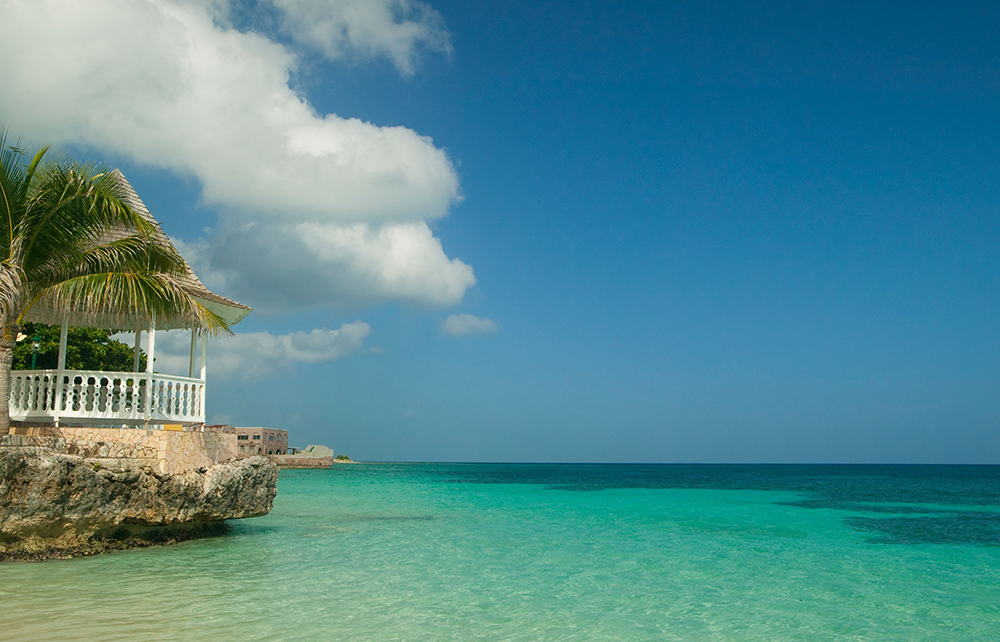The blue-skied, hibiscus-clad ‘postcard’ beauty of Montego Bay, where the seasons shift with the rhythm of the sea breeze, veils the terrifying reality of Safiya Sinclair’s life at home. Until the age of five, Safiya lived in a small Jamaican hamlet on the white sand close to the endless beaches that attract the tourists, many of whose ancestors, ‘the white enslavers’, stole Jamaicans’ freedom and left behind their unforgettable, unforgiveable legacy.
But for a while, as music and the sweet scent of ganja fill the salt air, Safiya, born in 1984, remains convinced that her country has given her all the blessings she could ask for. In language as richly beautiful as the natural world she inhabits, Safiya describes the three-bedroom home she shares with 12 others including her parents and three younger siblings. Where fishing provides the village with most of its income, the pace of the day is languid but cautious. When ‘a weatherworn fisherman may or may not greet you with a lift of his straw hat’ the first hint of anxiety interrupts this harmonious existence. And when, aged four, Safiya nearly drowns, saved from the engulfing waves by her mother, Esther, another dangerous current emerges.
Safiya’s father, Djani, seems genetically enraged, thanks to the appalling harm suffered during his own childhood. He believes in an unyielding version of Rastafari, convinced that the Ethiopian emperor, Haile Selassie, is the black Messiah. As a reggae musician born in 1962, Djani’s guitar–playing income is ironically dependent on gigs in the tourist hotels that symbolise the epicentre of ‘Babylon’, the corrupting, empire-drenched western world that he deplores. With its loathed figureheads including President Bush, Margaret Thatcher and those who live in ‘Foreign’ including the British queen, Babylon represents for the Rastafari ‘the government that had outlawed them, the police that had pummelled and killed them’. Patriarchal dominance thunderbolts Safiya’s story. Sleeping with ‘one watchful eye on my purity and one hand on his black machete’ he had a ‘gaze that could overcloud the sun’.
Fish, meat, dairy, alcohol and tobacco are all banned, as are trousers and the revealing of any flesh
Djani’s extreme interpretation of the sect controls every aspect of family life, especially that of his wife and two daughters. Fish, meat, dairy, alcohol and tobacco are all banned, as are trousers and the revealing of any flesh. Above all, hair must always be covered, never brushed and never cut. As Safiya’s dreadlocks grow increasingly knotted and unmanageable, resembling her father’s ‘curtain of vines’, so do the circumstances of her life. Any transgression will trigger fury and consequential punishment. A red belt becomes the favoured weapon for the beatings that are as integral to her world as ‘dirt and air’.
Djani’s volatility can also make him ‘easy’ to love. On returning from an unexpectedly lucrative six-month contract recording an album in Japan with his band, he brings back suitcases crammed with presents. However, after a subsequent trip the band breaks up, Djani is cheated by a fellow bandmate and he arrives home consumed by the fury of failure. Isolating his family within the radical straitjacket of Rastafari, his violence accelerates, unalleviated by a secret addiction to late-night pornography on television.
As money becomes scarcer and Safiya and her siblings are moved into smaller and smaller houses, so the parameters of their existence shrink. Despite being exceptionally clever, the children are the only Rasta family at school, at once designated outcasts within that community. Desperate for inclusion, they struggle in ‘a strange bubble of alienation’, mocked by other pupils for their unusual clothes, rejected by yearned-for friends. When Safiya is instructed by a teacher, as cruelly culpable as the students, to scrub the ineradicable henna pattern from her hands, she acknowledges that ‘fear had finally given way to fire’ and she is at last brought to the point of defiance. With a self-inflicted wound made by a rusty nail, followed by the use of a forbidden pair of scissors, the ‘seedling of a voice’ begins to rebel.
But it is Esther, seemingly confined within this dystopian trap, who finally offers Safiya and her adored brother and sisters the glimmer of lasting salvation. Driven by the ferocity of maternal love, Esther aborts her attempt to escape, cushioning herself not only with the daily use of ganja but an ingrained passion for literature. Demonstrating that no rules or physical abuse can obliterate the liberating power of words, she brings home coffee-stained books discarded by tourists in the island’s rubbish bins. ‘A wild wonder’ of a mother to her three children, she introduces them to the Romantic poets and Sylvia Plath, unleashing the dazzling eloquence of Safiya’s book, as prose gives way to poetry, fear to courage, despair to hope. As Safiya’s own poetic gift eventually brings her international recognition, her desire to replace repression with forgiveness is matched by an inextinguishable will to survive, so unequivocally illustrated by this electrifying memoir.






Comments